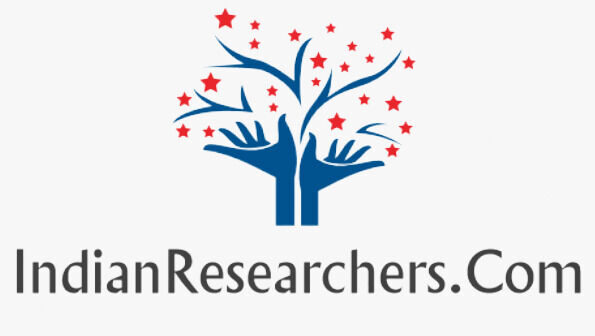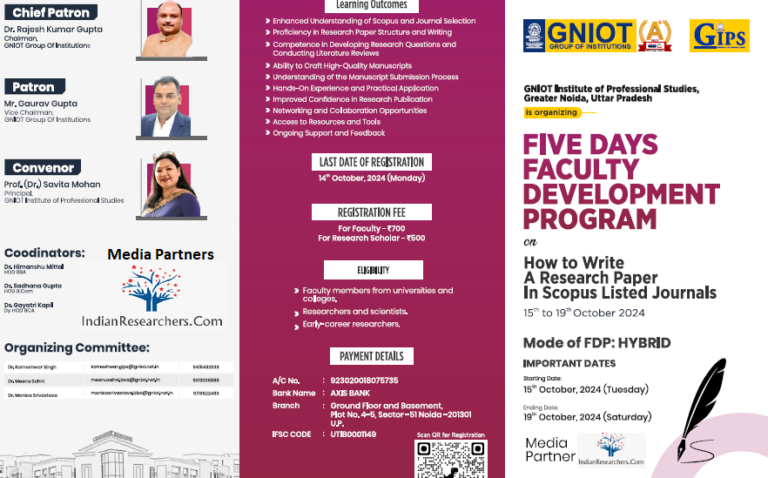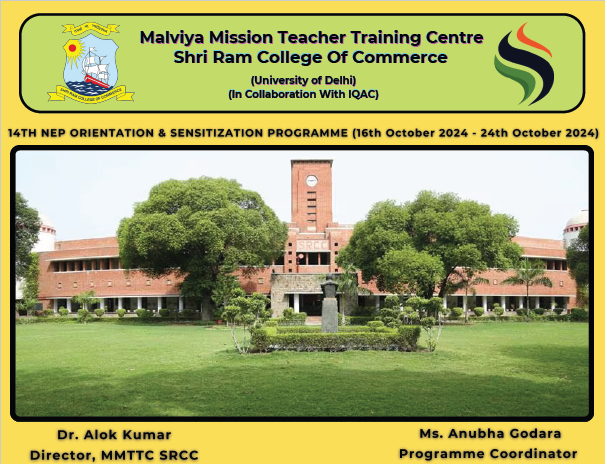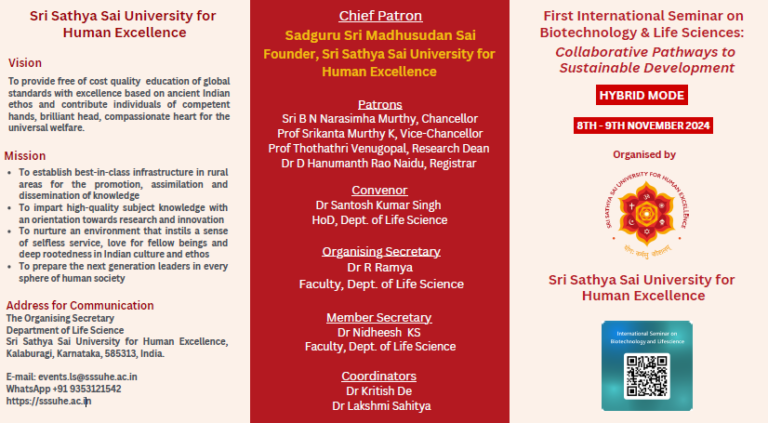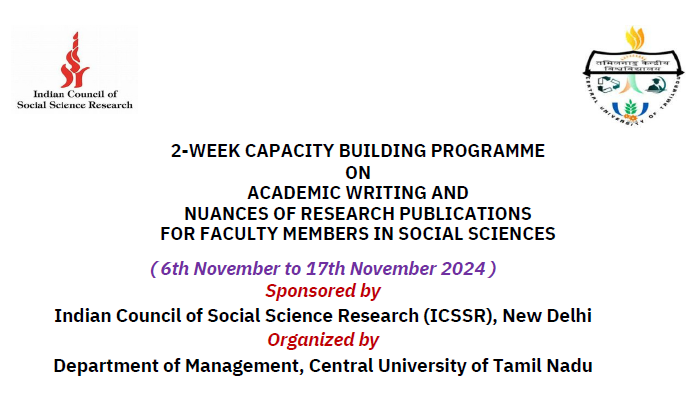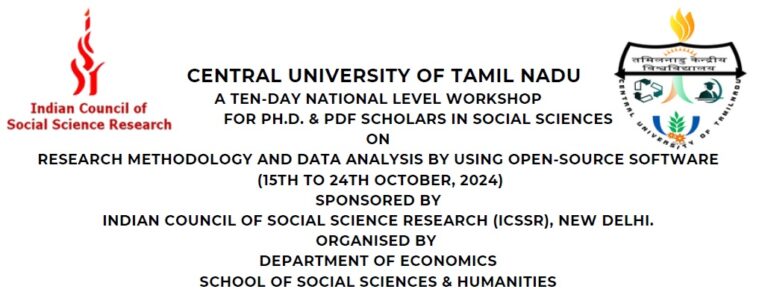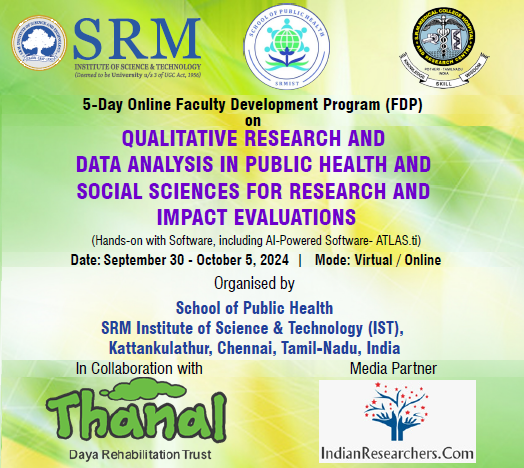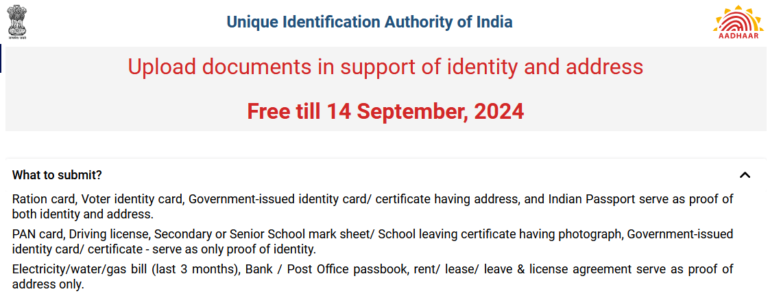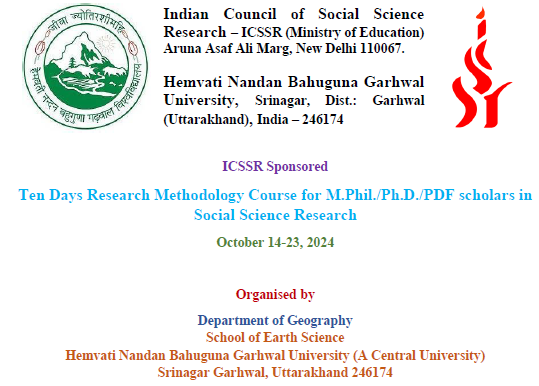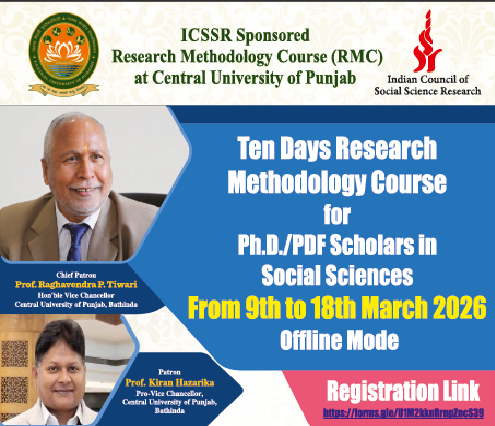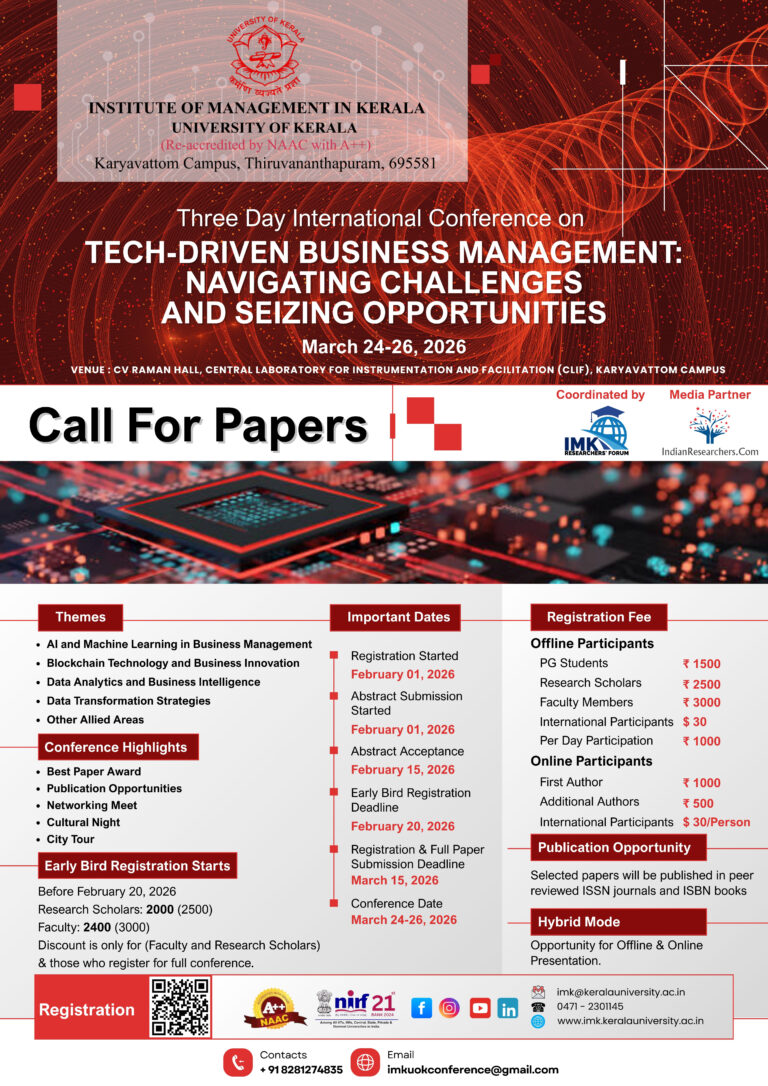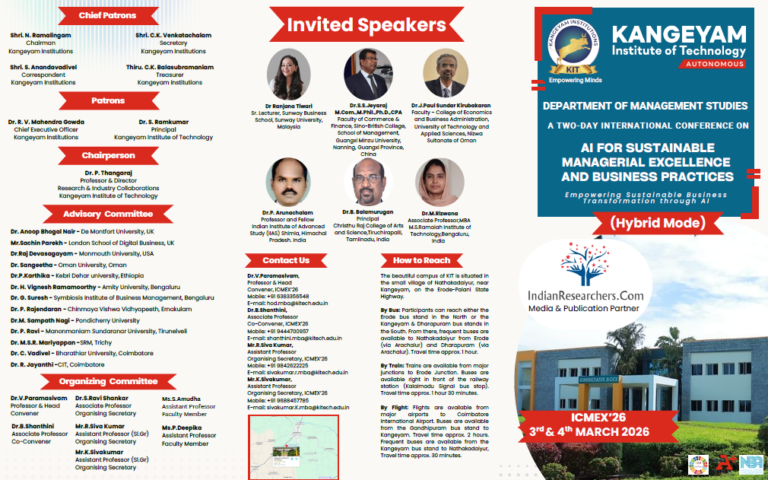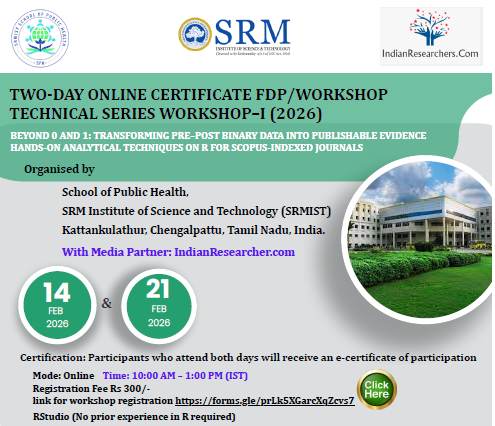GNOT Institute of Professional Studies, Greater Noida, Uttar Pradesh is organizing FIVE DAYS FACULTY DEVELOPMENT PROGRAM on...
IndianResearchers.Com Updates
Malviya Mission Teacher Training Centre Shri Ram College Of Commerce 14TH NEP ORIENTATION & SENSITIZATION PROGRAMME (16th...
First International Seminar on Biotechnology & Life Sciences: Collaborative Pathways to Sustainable Development Department of Life Science...
ICSSR SPONSORED Two WeekCAPACITY BUILDING PROGRAMMEON ACADEMIC WRITING AND NUANCES OF RESEARCH PUBLICATIONS FOR FACULTY MEMBERS IN...
ICSSR sponsored Two-Week Capacity Building Programme On Data Analytics for Commerce Teachers Date: 14 October 2024 –...
ICSSR, New Delhi Sponsored A TEN-DAY NATIONAL LEVEL WORKSHOP on Research Methodology and Data Analysis by using...
Date: September 30- October 5, 2024 (except on 2nd October, 2024). Mode: Virtual / Online Timings: 9:30am...
Aadhaar Card Update Last Date The final date for updating Aadhaar cards at no cost on the...
Concept NotesResearch methodological training is required to carry out scientific and systematic investigations of an undertaken problem...
2024 Second International Conference on Artificial Intelligence An Emerging Technology in Management
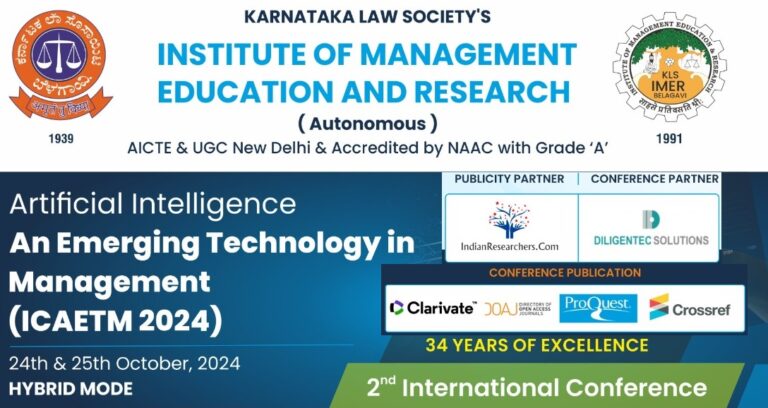

2024 Second International Conference on Artificial Intelligence An Emerging Technology in Management
ICAETM 2024 2024 Second International Conference on Artificial Intelligence: An Emerging Technology in Management (ICAETM 2024) offers...
